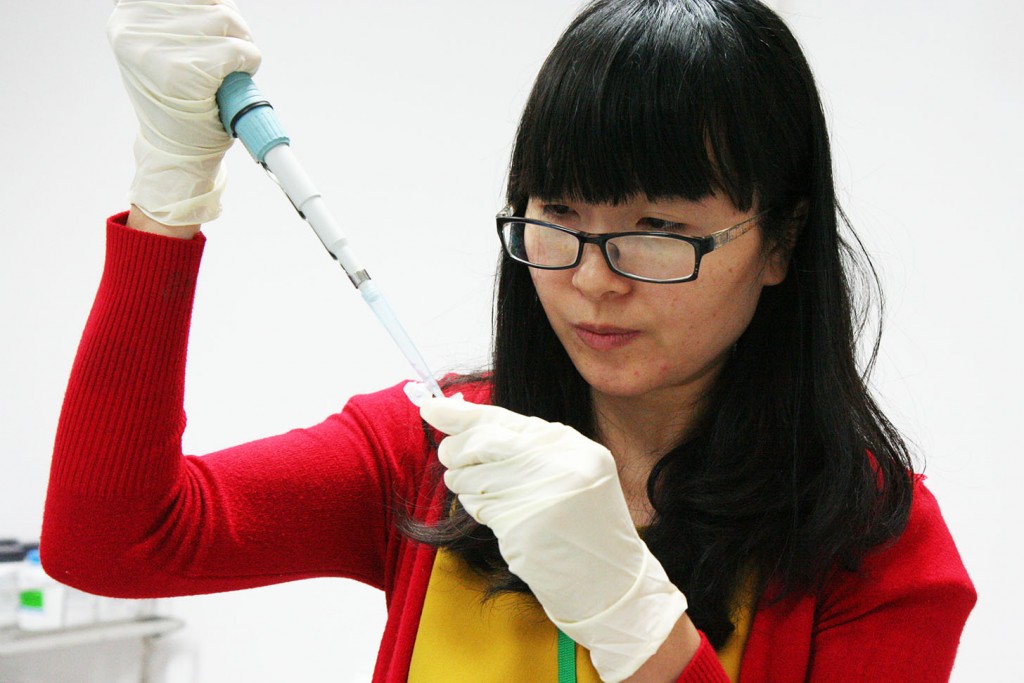 Ms. Quyen Ngoc Dung from Vietnam timidly smiled when replied to a question what she found most interesting in this ‘Regional Training on Regulatory Laboratory Practice on Biological Control Agents (BCA) and Biofertiliser’ recently hosted by Thailand’s Department of Agriculture, Ministry of Agriculture and Cooperatives in Bangkok.
Ms. Quyen Ngoc Dung from Vietnam timidly smiled when replied to a question what she found most interesting in this ‘Regional Training on Regulatory Laboratory Practice on Biological Control Agents (BCA) and Biofertiliser’ recently hosted by Thailand’s Department of Agriculture, Ministry of Agriculture and Cooperatives in Bangkok.
“I am interested in how you make food for worms,” said Ms. Dung, a researcher from Division of Pesticides, Weeds and Environment of Plant Protection Research Institute. “It can be produced in mass and is convenient in terms of production, use, and storage.” In Vietnam, leaves are used as the main ingredients and have to be grown in a green house. The worms are part of the biocontrol agents.
However, Ms. Dung said due to a limitation of lab equipment and technical-know-how in Vietnam, she was not certain if she could replicate.
“We need to greatly improve our skills and knowledge on biocontrol agents in terms of laboratory, and regulation and registration,” she said.
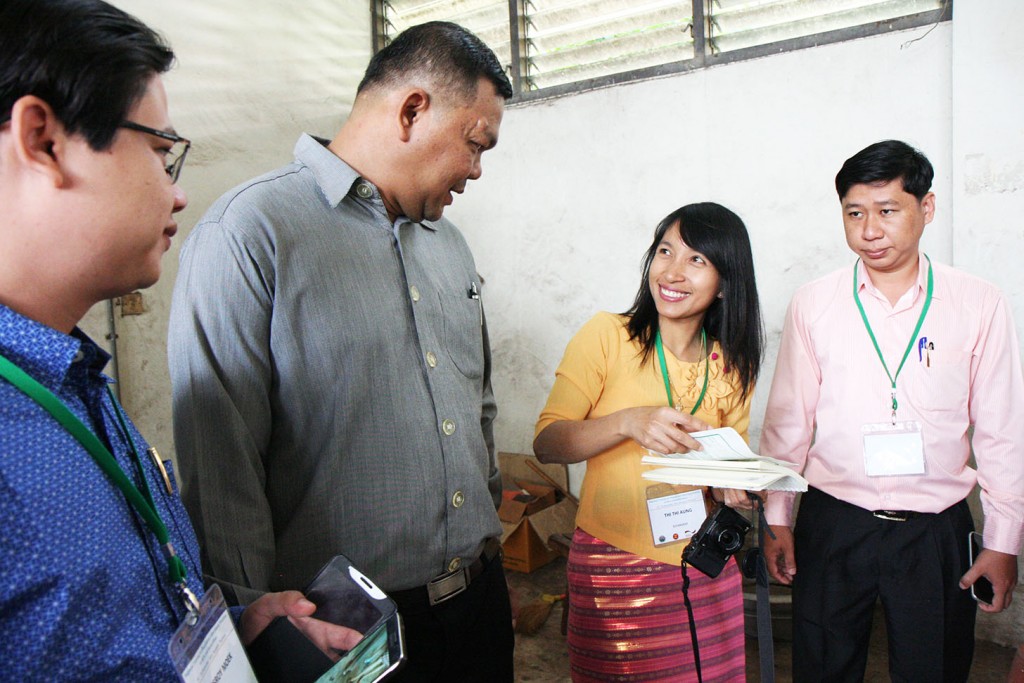 Recently, the Department of Agriculture, Thailand, in collaboration with ASEAN Sustainable Agrifood Systems (ASEAN SAS) received 15 participants from four ASEAN Member State countries–Cambodia, Lao PDR, Myanmar, and Vietnam to the five-day regional training in Bangkok in December 2015. The training aimed to intensify learning experiences and technical skills of the participants through lectures and discussions on biocontrol agent regulation and registration, hands-on laboratory practices, and a visit to a biocontrol agent production factory. ‘ASEAN Guidelines on the Regulation, Use and Trade of Biological Control Agents’ were also introduced.
Recently, the Department of Agriculture, Thailand, in collaboration with ASEAN Sustainable Agrifood Systems (ASEAN SAS) received 15 participants from four ASEAN Member State countries–Cambodia, Lao PDR, Myanmar, and Vietnam to the five-day regional training in Bangkok in December 2015. The training aimed to intensify learning experiences and technical skills of the participants through lectures and discussions on biocontrol agent regulation and registration, hands-on laboratory practices, and a visit to a biocontrol agent production factory. ‘ASEAN Guidelines on the Regulation, Use and Trade of Biological Control Agents’ were also introduced.
Endorsed by the Senior Officials Meeting of the ASEAN Ministers of Agriculture and Forestry, and supported by ASEAN SAS, the Guidelines are the agreed framework for national regulation and implementation strategies for development of biological control agents among ASEAN Member States. ASEAN SAS promotes sustainable agriculture for a long-term food security by encouraging a reduction of chemical use in agriculture and find alternatives of biocontrol agents as an integrated pest management.
Similar to Vietnam, 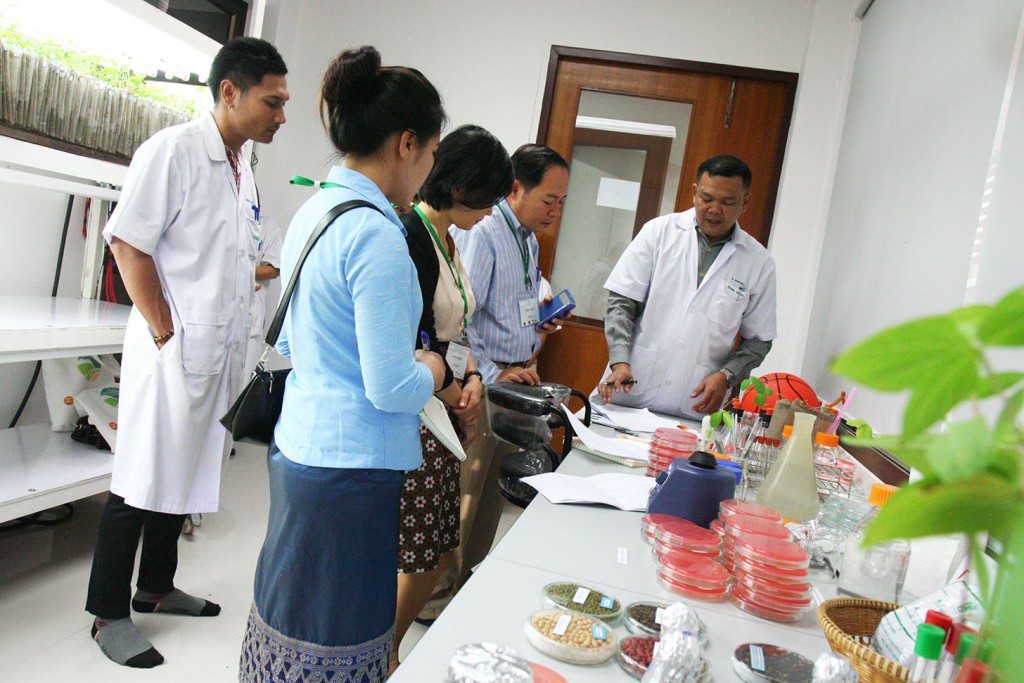 participants from Cambodia, Lao PDR, and Myanmar also said regulation and registration on biocontrol agents in their countries need to be improved, and in order to do that, improvement of laboratory equipment and technical knowledge and skills are, indeed, needed.
participants from Cambodia, Lao PDR, and Myanmar also said regulation and registration on biocontrol agents in their countries need to be improved, and in order to do that, improvement of laboratory equipment and technical knowledge and skills are, indeed, needed.
“In Cambodia, farmers use a lot of chemical pesticides and fetilisers because they expect fast results, and the government is being aware of it and putting the promotion of biocontrol agents onto a table. However, the farmers complain about the low quality of the biocontrol agent products, and we find out that, first, there are a lot of counterfeit biocontrol agents products, particularly along the borders, and second, the registered biocontrol agent products do not match their claims on the labels,” said Peov Meas, a Chief of Biotechnology Laboratory (Biofertiliser Quality Control) of National Agriculture Laboratory, General Directorate of Agriculture, Ministry of Agriculture, Forestry and Fisheries of Cambodia.
[su_note note_color=”#c4efa2″ radius=”7″]Commercial biological control agents are becoming increasingly important in modern, sustainable agriculture. They have gained attention of developing and emerging country agricultural administrations because of their relatively low toxicity to man and environment, potential for local production, and compatibility with smallholder farming, which is the predominant form of agricultural production in Southeast Asia. Source: ‘ASEAN Guidelines on the Regulation, Use and Trade of Biological Control Agents’ [/su_note]
“We need to improve our facility, and technical know-how to test the biocontrol agent products. We need advisory assistance,” he said.
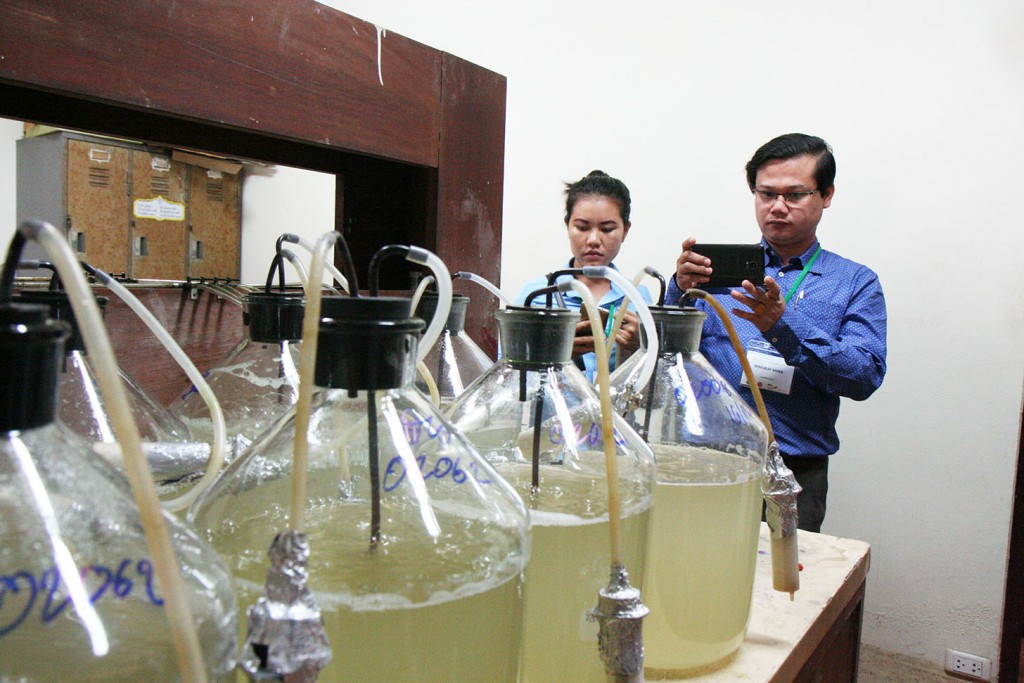 Souphaxay Oudomsen, a research from Lao PDR shared that Lao government encourages the use of biocontrol agents in agriculture.
Souphaxay Oudomsen, a research from Lao PDR shared that Lao government encourages the use of biocontrol agents in agriculture.
“The Lao national policy states farmers should produce chemical free vegetables and the agriculture production must be sustainable and safe for famers and consumers,” said Mr. Oudomsen from Plant Pathogen Unit of Plant Protection Centre.
In Lao PDR, over 60 percent of biocontrol agents products and biofertilisers are imported from neighboring countries such as China, Thailand, and Vietnam, according to Mr. Oudomsen, and these products will have to be registered. However, due to a lack of technology and skills in analyzing some of the ingredients, it makes the registration and quality control of the biocontrol agent products difficult.
Similar to Cambodia, Lao PDR, and Vietnam, Myanmar does not have specific regulation and registration on biocontrol agent products.
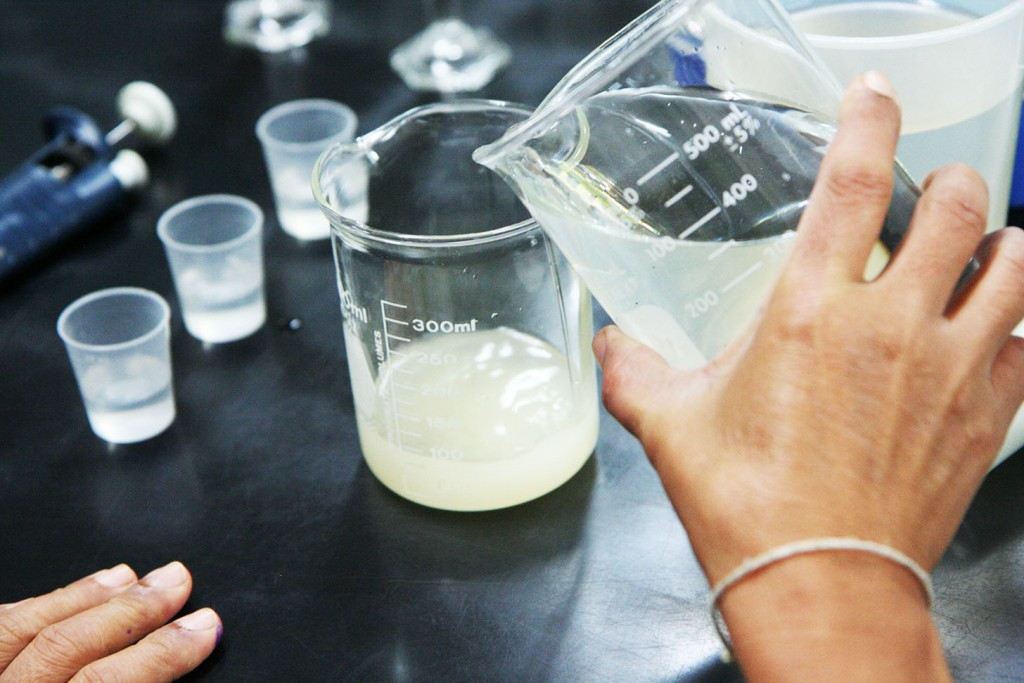 Ms. Thi Thi Aung of Myanmar’s Plant Pathology Section, Department of Agricultural Research said the biocontrol agent products contain different ingredients from synthetic products, therefore, the regulation and registration should take different requirements, steps, and procedures.
Ms. Thi Thi Aung of Myanmar’s Plant Pathology Section, Department of Agricultural Research said the biocontrol agent products contain different ingredients from synthetic products, therefore, the regulation and registration should take different requirements, steps, and procedures.
“For the technical point of views, for example, we must know the sample such as an amount of fungus, or a population of bacteria, and identify, isolate and test efficacy. And, these need trainings.
“Before joining the training in Bangkok, I think I knew, but when I came here, I learn new things I did not know. And it is good that we have participants with different backgrounds from each country, so we could learn from different aspects and perspectives, and at the same time we bring certain knowledge in our areas back and share them with our colleagues in the same fields in our departments. The more and the better we know, the more and the better we can work together in a holistic manner,” said Ms. Aung, a senior researcher assistant.
By Rojana Manowalailao, ASEAN Sustainable Agrifood Systems